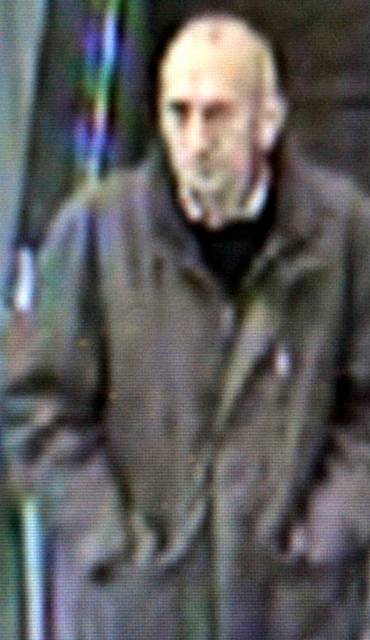Jigsaw of intrigue
Date published: 20 February 2017
I WOKE today thinking of a dead man who finally has his own name but whose last few days on earth are still mired in intrigue and speculation ...
Because despite unrelenting efforts by a tenacious team of Oldham detectives who finally identified the mystery man of Saddleworth moor, a bedevilling question is still unanswered: Just what compelled David Lytton, a 67-year-old former London croupier, to travel more than 4,000 miles from Pakistan to end his life on a shale-strewn mountain track?
The pieces of this complex, initially almost-unfathomable mosaic, have been meticulously pulled together by Detective Sergeant John Coleman, backed by his trusty detective constables Kelly Bragg and Nichola Chapman of Oldham CID.
But despite their Trojan efforts, set against a burgeoning daily workload, the picture is still incomplete. Because, as yet, why David Lytton made his way to visit and subsequently die a lonely death on Chew track at Dovestones is still a mystery.
Details of his English family and their background remain with police and the coroner until his inquest next month.
However, what is known is David was in good health and had moved from London to live in Lahore, Pakistan's second-largest city, in October 2006 after retiring as a tube driver.
During his time in London, he was a man with quiet good taste and bought expensive shoes from a central London store.
He was actually wearing a pair of polished slip-ons, costing more than £250 when he died.
But there are some intriguing diversions on the trail of the man who police say "compartmentalised" his friends.
For example, his current British passport picture shows him wearing spectacles.
And he was clearly photographed with them passing through Lahore airport on the first step of his final, fateful return journey to the UK.
But they are not seen on any CCTV footage recording him walking to Ealing Broadway, arriving at London Euston and spending more than 50 minutes at Manchester Piccadilly.
Nor were they found on his body.
Yet it is known David had problems with his vision which resulted in reduced visibility, so why didn't he wear them on the long, 180-mile journey north?
Mr Lytton paid cash for all his rail tickets including, crucially, a return London to Manchester journey: Why?
Maybe he had not made his mind up as to the final act? Did he want to make sure the location was right?
Did he know there was strychnine in the small screw-top plastic bottle marked thyroxine (used to treat thyroid conditions) and found empty in his jacket pocket?
Or, even more confusingly, did he intend to return to London on the evening of Friday, December 11?
On the previous night after flying in, he stayed in a hotel in the Ealing area where he may have booked longer.
But ironically, his final identification was not made until exactly a year to the day his body was first discovered on the rugged hillside.
Consequently, police believe his personal suitcase had been disposed of by hotel staff ... or David himself.
The saga shifts to his journey from Manchester Piccadilly station to The Clarence at Greenfield.
CCTV showed him walking out of Piccadilly but scrutiny of film on Metro trams and at Greenfield station was negative.
And Sergeant Coleman and his team have spoken to Manchester Council who emailed all licensed taxi drivers requesting assistance of fares they carried between Manchester and Greenfield on that day.
No drivers have come forward.
Alternatively, his journey could have been made with a private hire car who may have known the area and simply not confirmed the fare.
Or was he collected by someone, as yet unidentified, who dropped him at Greenfield?
I revisit The Clarence and talk to Mel Robinson, the pub's landlord, who retells of his brief meeting with Mr Lytton.
He was possibly the last person to speak to David after he'd asked for "the way to the top of the mountains..."
Then, following the same route, I make my way up the winding track to the grassy knoll beneath Robbs Rocks were David's body was found by a passing cyclist in the bruised aftermath of a cold, stormy night.
The wind curls and buffets the hooded rocks, scuffing the polished grasses: all is silent.
Like the sea, the dark, brooding stones reveal nothing.
Yet as the inquest approaches, I believe the life and times of David Lytton, alias Neil Dovestones, will still reveal more surprising answers than questions ...
Apart perhaps from the most tantalising one of all: why he came to Saddleworth moor?
Most Viewed News Stories
- 1Milan Bar in Lees and The Bank at Delph close doors with immediate effect
- 2Latics announce retained list
- 3Punch perfect Kyle is Oldham's latest national boxing champ
- 4Second-hand music, books and media shop opens in Mossley
- 5Attack on shop worker filmed and posted on Snapchat results in jail sentence for Oldham man





